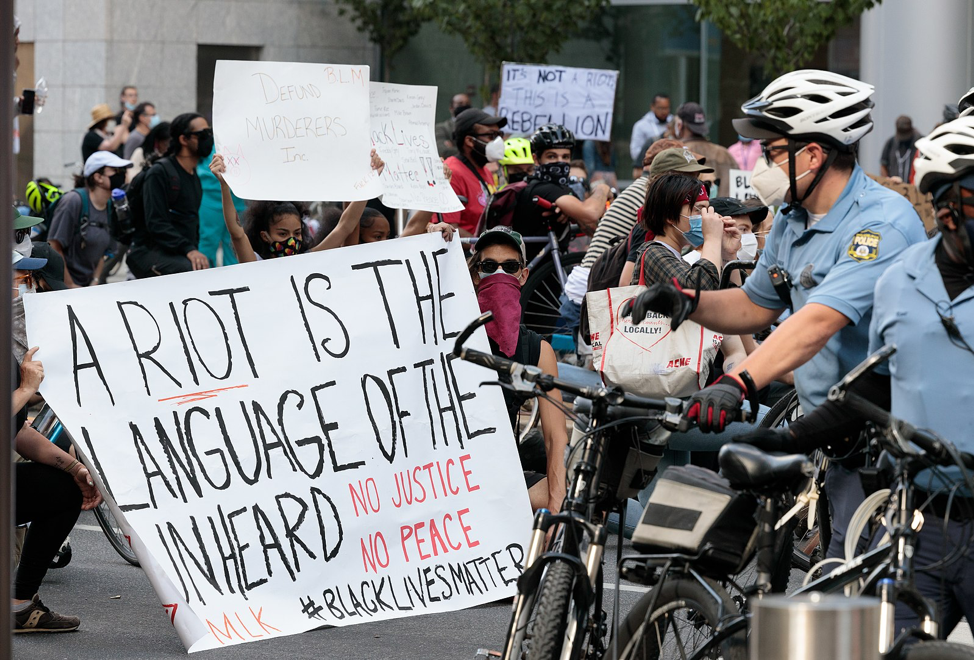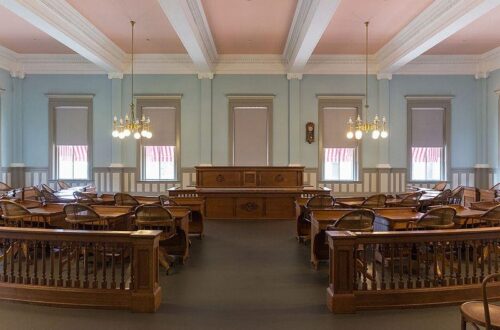Governor Ron DeSantis wants law and order, and his allies in the Florida Legislature started off the 2021 session by filing a bill that he proposed in September.
Dubbed the “Combating Violence, Disorder and Looting and Law Enforcement Protection Act,” the legislation proposed by the governor’s office creates new criminal offenses, significantly increases penalties for protest-related offenses, and includes a number of “citizen and taxpayer protection measures,” which include withholding state funds to cities that reduce their police department budgets or terminating state pensions and banning future state employment for anyone guilty of participating in a “violent or disorderly assembly.”
Originally drafted in response to the Black Lives Matter protests that swept the nation this past summer, DeSantis has used the insurrection of Jan. 6 to renew his calls to pass the bill, suggesting it could now have bipartisan appeal after violent supporters of former President Donald Trump raided the U.S. Capitol.
As the first governor to openly suggest Republican-controlled legislatures should overturn the results of the presidential election back in November, DeSantis has made it clear that he takes no blame for the attempted coup. Like most prominent GOP officials, he condemned the unprecedented violence.
However, he also stood firmly behind his prior remarks supporting repeatedly debunked claims of election fraud propagated by Trump, who launched DeSantis from obscurity to the Republican gubernatorial nomination with a single tweet.
“What I’ve said is you can file suits; [there are] political ways to do it,” said DeSantis, according to the Orlando Sentinel. “In no way have I supported any type of lawlessness or anything like that.”
Florida speaker Chris Sprowls, R-Palm Harbor, echoed the governor’s sentiments in the House of Representatives, specifically citing the “cowardly and un-American spectacle” as justification for the act, which has become SB 484 in the Senate and HB 1 in the House.
Yet despite the Republican push for bipartisanship, Democrats remain firmly opposed to the proposal, which some critics have called unconstitutional and “un-American.”
“HB 1 is in response to the #[BlackLivesMatter] protests,” the House Democratic Caucus tweeted on Jan. 15. “It’s wrong for Florida. Don’t let them tell you otherwise.”
The statement was accompanied by a series of infographics listing Democratic criticisms of the bill, including its excessive penalties, protection of Confederate monuments, intrusion into local government, and the likelihood that the law will be disproportionately enforced against minority communities in Florida.
Particularly concerning to the bill’s opponents is the fact that it never actually defines a “riot,” even though many of its provisions create new offenses or increase the punishment of existing offenses if they occur during a riot. One example is the proposed enactment of a six-month mandatory minimum jail sentence for striking a police officer.
Mandatory minimums have long been reviled by criminal justice reform advocates and racial justice advocates for targeting communities of color and perpetuating mass incarceration.
Also controversial is the proposal to withhold funds from cities that reduce their police budgets.
The practice of prohibiting local government from enacting policy, known as preemption, is an increasingly popular tool for Republican-held state governments seeking to restrict the actions of largely Democratic-controlled cities. A 2018 report by the National League of Cities showed Florida used preemption laws in a wider range of policy areas than nearly every other state.
“Local governments and their residents have every right to reallocate their budget to reflect the needs and values of their communities,” said the ACLU of Florida in a press statement when the proposal was unveiled in September. “Just because the governor refuses to address racial injustice and police brutality does not mean local governments must follow suit.”
Other provisions of the bill include the criminalization of “mob intimidation,” which is defined as three or more people attempting to “induce another person by force, or threat of force, to do any act or to assume or abandon a particular viewpoint,” and the establishment of a first-degree misdemeanor charge for publishing an individual’s personal identity with intent to use the information to “threaten, intimidate, harass, incite violence, or commit a crime against” them.
Despite DeSantis and Sprowls’s attempts to rebrand the bill as a bipartisan crackdown on political violence, Democrats remain unmoved. However, with significant Republican majorities in all branches of state government, it seems inevitable that Florida will soon respond to a year of racial justice activism with one of the most stringent anti-riot laws in the country.
Featured image: Police officers stand across from Black Lives Matter protestors in June 2020. Unmodified image by RGB. used under a Creative Commons license. (https://bit.ly/3qRpCQi)
Check out other recent articles from the Florida Political Review here.






One Comment
Geoffrey Caran
At first I thought this article was news. I was mistaken. It was a biased editorial. I’m originally from New York. I can tell you first hand that the “Law Enforcement Protection Act” actually protects citizens. Go take a walk around New York City alone and then report on that.